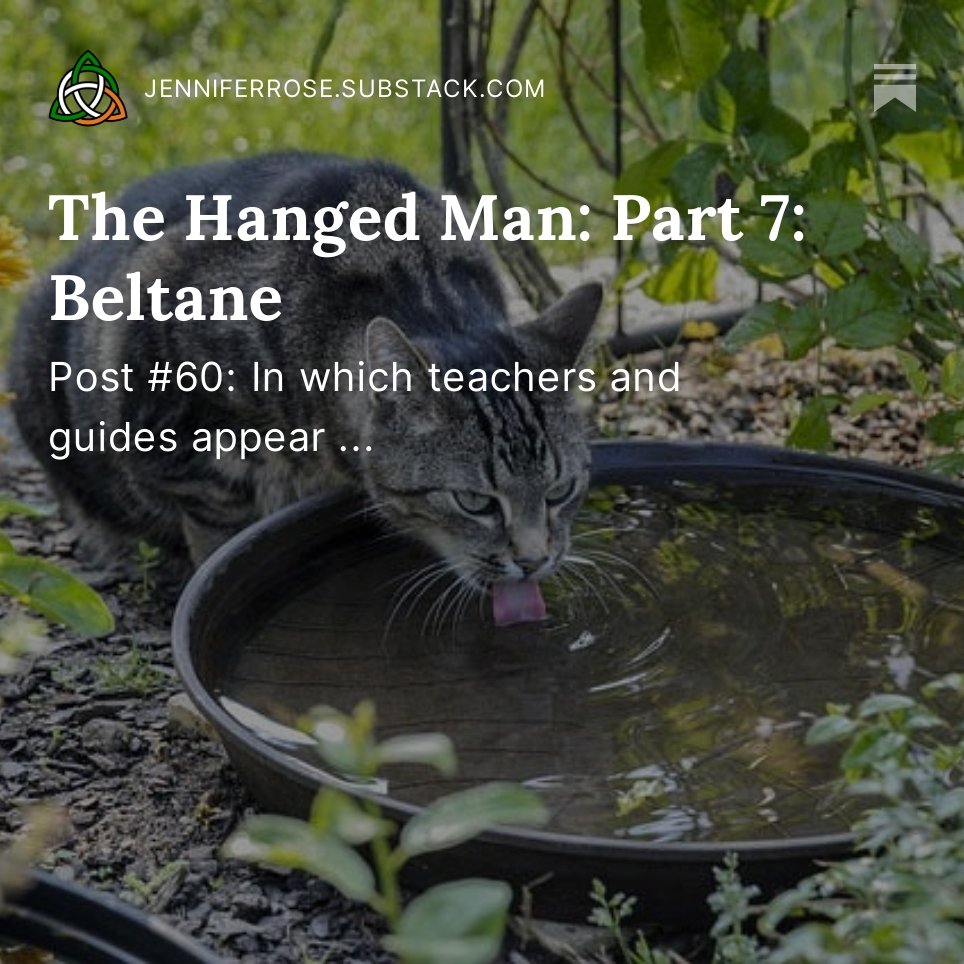by Jenny Rose | Jun 22, 2024 | Emotional Intelligence, Needs
In a recent conversation, someone asserted to me that ultimately everyone does what they want. I felt an immediate fury. That does not describe my life at all. I chewed on my outrage and resentment for a few weeks, simmering, until I decided to get over it and figure out why I was so hijacked.
I was immediately lost in the puckerbrush. Making choices about what we do and don’t do is intimately tied to needs and wants, and I have yet to be able to distinguish between the two once beyond the level of survival needs, or find any kind of clarity from someone else. Needs and wants are unpleasant territory I don’t want to explore. (See? There it is. I don’t want to. Yet I am, and I might need to.)

Photo by Bryan Minear on Unsplash
Then there’s the whole actions versus words aspect. People say they want things but don’t act accordingly. If we really want something, our behavior reflects it. If our behavior does not reflect our stated wants, we’re deceiving ourselves, or someone else, or both. I deeply distrust mixed messages. More unpleasant territory and old trauma.
Choice is in there, too. Choice is a big subject and a major theme in this blog. As I’ve mused on the statement ‘we all do what we want to do’ and made notes (you know I always make notes), I’ve wondered how we can compare a parent in some war-torn place attempting to keep their starving child alive another day with a wealthy person trying to decide if they want to fly their private plane to Paris for dinner or stay in and watch a movie in their in-home theater and have their chef prepare a seven-course meal. With wine, naturally.
One person has limited choices, all excruciating, to achieve continued survival for a few hours. The other has almost unlimited choices, all luxuries. How can I possibly compare the two? Can we say the parent trying to keep their child alive is doing what they want to do? Come on! Yet they do want to keep their child alive, right?
Perhaps it seems complicated and confusing because it’s complicated and confusing.
I wound up with a page full of notes, some sobering personal revelations, and a hairball.
On an internet search, I found articles pointing out the distinction between doing exactly what we want to do in any given moment (a toddler or a hedonist) and doing things we don’t want to do in service to an outcome we do want. That made sense to me.
If we focus on wanted outcomes rather than individual actions, we must have the ability to plan, look ahead, anticipate, and understand possible consequences of our actions. We also must attempt to predict the responses and reactions of the people around us to our actions, which means we have to understand something about emotional intelligence …

Photo by Manuel Sardo on Unsplash
… and now we’re back in the puckerbrush. I hate predictions. I don’t like leaps of faith. (I have a magnet on my fridge that says “Leap and the net will appear.” I don’t know why I keep it. It makes me mad every time I read it. Show me the warranty on that net. Show me the weight testing. Show me the damn net, in fact. Who will set it up when I leap? Are they paying attention or looking at their phone?) I trust my intuition, but I know I can be wrong. People are unpredictable. Life is unpredictable.
And yet we humans, including me, make choices all day long every day based on what we think will or might or could happen next. I’ve written about attachment to outcomes before. As I get older I’ve replaced a lot of my desired specific outcomes with simply wanting to know I did my best, regardless of outcomes. I may not like the outcome I get, but my integrity remains intact.
And then there are the people who don’t seem to understand actions and consequences in any kind of relationship. They choose what they choose in the moment and are hurt and/or outraged to discover the downstream consequences of that choice, especially in the context of many other choices. I observe this is a frequent divide along male/female lines. Women generally see everything as connected. Men generally see most things as discrete, in their own box. This is just one reason why I think “romantic” male/female relationships can be so devastating. We are often on different pages without knowing it.
If it’s true that we all do what we want in service to a desired outcome, what happens when my choices collide with yours? If you perceive me as blocking progress to your desired outcome you’re going to feel angry, and vice versa. We’re going to want each other to make different choices aligning with our personal desires. Most of the time, people won’t do that. We’re all attached to the outcomes we want.
A big piece of this for me is emotional labor, that hidden torrent winding through my life, sweeping away incalculable energy, time, and innocence. One of my priorities is healthy relationships. Close healthy relationships require time and attention; the ability to make choices for the good of the relationship rather than considering only our own wants and needs. This is an ongoing practice, not doing something we really don’t want to do once every six months and expecting applause. It means we have to face our own demons, learn to communicate clearly and honestly, negotiate, share power, and problem solve. It means boundaries and respect. It means reciprocity.
Having learned about reciprocity, I now prioritize my relationships to the degree the other does. I will not sign up to do all the emotional labor. I’m not interested in a close relationship like that. The price is too high. I’d rather put my energy into my relationship with myself. At least I appreciate my own efforts!
My conclusion about this ‘we all do what we want’ thing (gritted teeth – it still makes me mad), is it may be true if we consider our choices in the context of outcomes. I’ve made a lot of choices out of the clear knowledge that they were simply the right thing to do, too, choices that have been terrible for me, terrible in some of their consequences, yet ultimately still were the right thing for me to do. I had no outcome in mind. I don’t regret those kinds of choices, but they left permanent scars.

Photo by Cristian Newman on Unsplash
I want to blame others for all the time I’ve spent doing things I didn’t want to do, but it seems what we do and don’t do are entirely in our own hands, our own responsibility. Our lives are built on the choices we make, big and small, every hour of every day. If we don’t like our lives, we need to pay attention. Perhaps the useful question to ask ourselves if we hate what we’re doing at any given moment is, “Why am I doing this?” If we’re focused on a particular desired outcome, we may need to stop and think about whether our actions are effective in getting us there. Spending years of our lives desperately hoping and trying to reach an outcome and doing things we hate is not effective. I know this from personal experience. Our wants and needs change over time; what we once longed for may no longer be something we’re interested in. Sometimes we need to reality check ourselves. If we’ve been trying to get loved, for example, or please someone for a long period of time, it might be time to acknowledge our goal is not attainable or not worth attaining. Sometimes no matter how hard we work for an outcome it’s not achievable.
Then there’s the flip side: None of us do what we don’t want to do. That one is equally hard for me to swallow, but that’s a conversation for another day.
Questions:
- How much of each day do you spend doing things you don’t want to do? Why?
- What desired outcome(s) in your life requires you to do things you don’t want to do?
- Do you see your daily choices as isolated or part of a larger context attached to your wants and needs?
- Do you feel forced to labor emotionally? What would happen if you stopped?
- Who in your life reciprocates your level of emotional labor?
Leave a comment below!
To read my fiction, serially published free every week, go here: 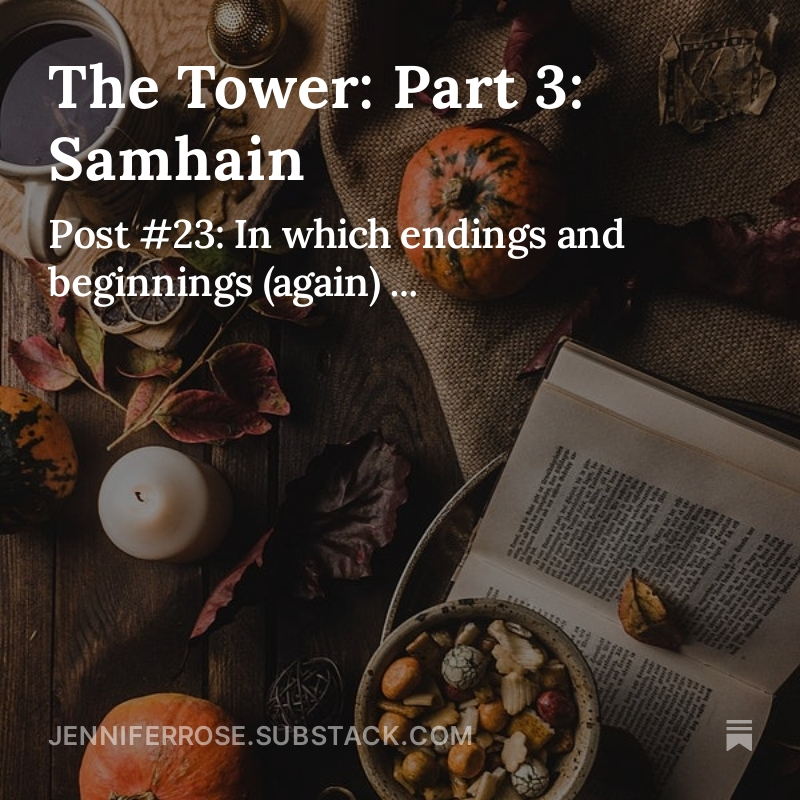
by Jenny Rose | Mar 16, 2024 | A Flourishing Woman, Mind
I’m still looking at my locked room, which I wrote about in my last post. I’ve had some interesting conversations about that post.
My emotional intelligence coach (who has now retired) used a phrase years ago when I was working formally with him: “I want everything you are and nothing you are not.”
It touched a deep, lifelong longing in me to be loved, accepted, seen in my entirety, though I know I would never allow myself to be seen in my entirety.
Through the years since, I’ve carried that phrase with me as I love and interact with those around me. Depending on my mood, it’s a ridiculous, impossible-to-achieve sentiment for any human being, cruel in its false hope, akin to rom coms. Or it’s something to aspire to, a reminder to be softer with my rigidities and expectations, quicker to forgive.
As I wrote a couple of weeks ago about locked internal rooms, it suddenly struck me in all the years I’ve been thinking about that phrase I never once said it to myself. I’ve been focused on my grief and shame about never being good enough to find that kind of love from another human being, or on my suspicion that none of us can honestly say that to one another. Not day after day in the long term.

Photo by Ryan Moreno on Unsplash
Over the last decade or so I’ve slowly, agonizingly, stopped hoping a prince on a white horse would show up who would love everything I am, or even love part of what I am unconditionally. (But, honestly, I wanted him to love everything!) I’ve turned more and more towards meeting my own needs for intimacy and connection, realizing the pain of disconnect is from within myself, not external. I want unconditional love. It’s not a feeling I have any power to make others feel.
Unconditional love towards myself, however, is a minute-by-minute challenge in which I have all the power.
Now, that’s a thought.
Extending unconditional love to myself is hard. I would a thousand times rather love someone else and dream of Mr. Right, except I know how that ends … and frankly, I’m bored with it. In fact, it occurred to me a couple of days ago I’m really not interested in Mr. Right anymore. Or Mr. Wrong. Or Mr. Anybody, romantically speaking. I’ve been smiling about that realization ever since. It’s oddly freeing. I watch women in my age cohort with their husbands/significant others where I work in a pool rehab center and think, “Better you than me, sister!” And smile some more. An enigmatic lifeguard smile (I hope).
The whole idea of romance doesn’t fascinate me anymore unless it’s strictly fantasy. Repairing and healing my relationship with myself is far more interesting. This refocus may be the greatest gift of menopause. I know some women grieve over it, but for me it’s freedom from what was frequently an overwhelming, stressful, and complicated biological imperative. Whew.
Is it possible for us to love ourselves unconditionally? Is it possible for me to do so?
What a question! A question leading straight back to my locked room.

Photo by John Salvino on Unsplash
I can’t love everything I am and nothing I’m not if I don’t know everything I am. If I don’t want to know. If I refuse to find out.
(Item: in my last Tarot spread for Imbolc I drew the Sea: Plumbing the Depths card.)
Now, like all of us, I have acceptable (to me) qualities and traits and unacceptable ones. I’m a mishmash of genetic inheritance and learned behavior. I’m a hot mess and I’m reasonably competent and effective. Sometimes all at the same time!
And I’m supposed to unconditionally love that?
Well, yes. That’s what unconditional love is, right?
I have a varicose vein popping up. I’m deeply insulted. WTF? I’m supposed to love that? I’m supposed to love the genetic inheritance/sun exposure/years of chronic pain that caused me to be sedentary/and other factors in the tired, bulging, blue-violet vein in my lower leg? What about the foot I’m pretty sure I’m developing a touch of arthritis in? What about my aging neck? What about my age-spotted hands (more sun exposure)?
And that’s just the beginning. I’m supposed to love the roots of my perfectionism, my speeding, my anxiety? Well, not the roots, but the child who was traumatized and developed those mechanisms to survive? (And did survive, let’s not forget.)
Romantically speaking, it’s easy to love white horses, roses, diamonds, champagne, sexy exotic vacations (none of which I find especially romantic, but you know what I mean!). I can love my competence, doggedness, creativity, integrity, ability to support others, and many other fine qualities (if I do say so myself). But the aches and pains, sleepless nights, endless loops of anxiety, tendency toward depression, rigidity, fawning, inept healthy boundaries and self-advocating – these are not lovable. These are a pain in the ass.
I am a frequent pain in my own ass.
Can anyone relate?
As for mistakes (I turned out the ladies’ locker room light while someone was still in there last week when we closed the pool!), shameful thoughts and feelings, dire deeds I wish I could forget, habitual catastrophizing, hurt I’ve inflicted on others, parenting mistakes, and a host of other miserable dead bodies in my locked room, unconditional love means I love those, too. It means I love my fallible, aging, flawed, exceedingly human self. All of it. All of me.

Photo by Cristian Newman on Unsplash
It makes me want to permanently lose the keys to my locked room.
Then there’s the “nothing I am not” part of the equation. Boundaries again. I’m so tired of working on boundaries. On the other hand, having no boundaries makes life not worth living, so I persevere. “Nothing I am not” includes what I was taught about myself and my role in my family as a child; false and limiting beliefs; my endlessly carping, nitpicking, internal critic; fear; despair; depression; anxiety; etc., etc. We carry so many burdens, and many of them never belonged to us in the first place. We took them upon ourselves, or someone forced them upon us, or we accepted them in order to ‘help’ someone else. Some are simply old coping mechanisms allowing us to survive our hard times but now outdated and useless.
At the end of all this, I wonder if our locked rooms are just another challenge in love. How much of ourselves do we shut away because we can’t love all of what we are, and we’re certain others couldn’t love us if they knew what was behind the door?
In the case of storing experience too horrific to manage, such as deep trauma, grief, or guilt, don’t those feelings need unconditional love most of all? The locked room itself, however we envision it, however we envision its door, is surely deserving of love too. It allows us to continue to function in life in spite of terrible experiences. It gives us respite, a way to pause, a way to give ourselves time to gain distance, wisdom, grow into new skills and learn how to help ourselves if and when we do crack the door open. It allows us to stay safe and sane.
For me, a choice to practice loving everything I am and nothing I’m not means I’ll be opening the door to my locked room and poking around in there. Now I’m curious. Could I at least consider loving what I find?
I’m considering it. Carefully.
Questions:
- What do you love about yourself?
- What do you have to do, be, or stop doing to earn your own love?
- Do you think more about finding someone to love you or practicing self-love?
- What if finding “true love” is impossible unless we love ourselves fully first?
Leave a comment below!
To read my fiction, serially published free every week, go here: 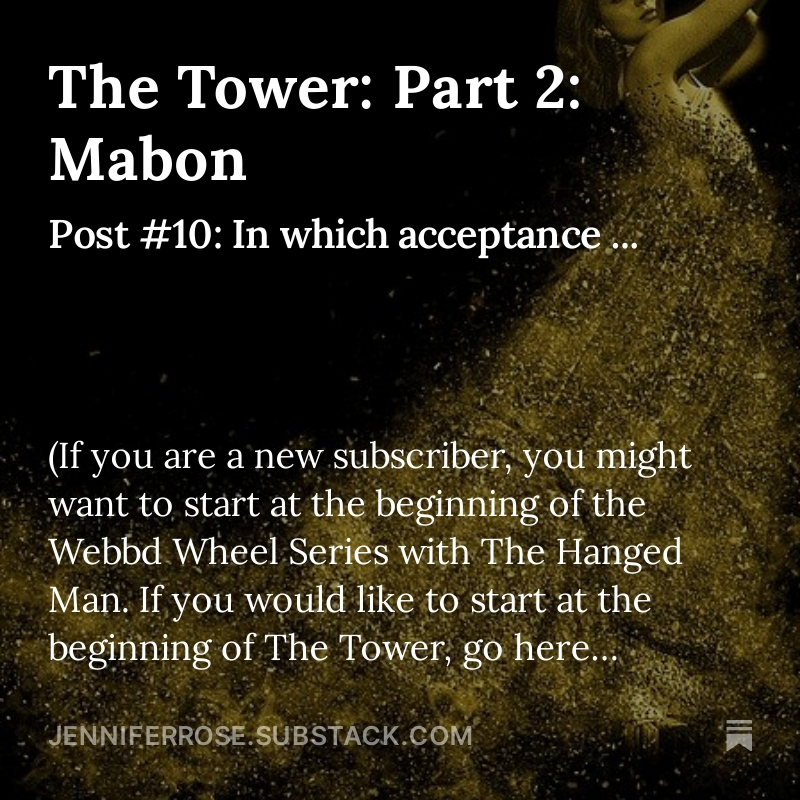
by Jenny Rose | Jan 6, 2024 | Aging, Connection & Community, Emotional Intelligence
I’ve been resting in this pause between solstice and the new year. Although I made a conscious choice to set aside everything I could, it was uncomfortable to let this blog lie fallow. On the other hand, I have not been inspired to do much more than manage day-to-day life.
I’m grateful to have moved into new holiday routines after decades of feeling imprisoned by obligation and duty to my fractured family and making Christmas meaningful and fun for my children. Gone are the days of huge, exhausting meals, tight schedules, trying desperately to please everyone at my own expense, spending much of the holidays in the car traveling between homes, and tired, overstimulated children. Not to mention tired, overstimulated me.
Now I focus on Yule, on the deep, introspective peace of winter and long nights, withdrawing into my cozy home. I engage in rituals I love: candles, simple decorating, making a double batch of Spritz cookies with my cookie press to share, and welcoming the return of the light.

Photo by David Monje on Unsplash
This year we had a tropical storm the week before Christmas with high winds and torrential rains that flooded our town and, indeed, the whole state. We were without power for 48 hours. The lack of electric light (or electric anything else) fit in well with Yule, though we got very cold. We were also trapped; every bridge in the area was closed and the Kennebec River, which winds through our town, rose 30 feet, which is 15 feet above flood stage. Between flooding and downed trees, we were unable to leave our immediate neighborhood. Most businesses closed. The ones that stayed open (with generators) quickly ran out of everything. Our neighbors loaned us a butane camp stove so I could heat water for hot drinks.
As soon as the power was restored I ordered a propane camp stove.
Life rolls along, whether I’m posting or not.
This morning, as I lay in bed waking, I heard snow plows in our neighborhood. We’ve had more rain here, and clearly sometime during the night it had changed to snow. As I moved around the kitchen, watching the sky lighten and the snow fall, cooking breakfast, sipping my first cup of tea, enjoying glowing candles, my thoughts drifted.
Impossible to avoid end-of-year lists and reviews and new year resolutions, hopes and fears this time of year. I generally am uninterested. I’m content to let the old year diminish and recede, particularly this one, which was especially difficult personally. I don’t enjoy new year resolutions, mine or anyone else’s. None of us know what the new year will bring and many of us look ahead with some trepidation and anxiety; I don’t need to exacerbate mine by making or consuming predictions. What will come will come and we’ll have to cope with it.
I will be 60 this month. Impossible. Incredible. For the first time in my life, I’m daunted by a birthday. Generally, I hardly notice them. I’m annoyed by my discomfort this year. I’m determined not to focus on it, but I keep seeing it out of the corner of my eye.
I asked myself a question as I moved around the kitchen this morning. If I could have anything for my birthday, if I could make one intention for the year ahead, what would it be?
It’s easier to think about what we don’t want, isn’t it? I reviewed my current challenges and anxieties, watching the pewter sky and the snow becoming less rain and more flakes as the temperature dropped. I flipped the bacon, gave the cats another half a can of food so they would get out from under my feet. The pipes in the radiators creaked and popped as the furnace turned on.
The word ‘simplicity’ came into my mind. I turned it over. I thought about what brings me joy. I thought about candles, reading a good book, the warmth and weight of a cat in my lap. I thought about a cup of hot tea. I thought about music, the rhythm of swimming, being with people I love and trust. Sitting in my comfortable chair with my weighted blanket, just breathing. Peace. Stillness. Light and shadow. Long nights. My warm bed. Hot showers. Solitude. Privacy. I thought about my current laptop background. A perfect illustration of simplicity:

I thought about what I don’t want. The endless complications of being nice, pleasing others, fawning to stave off violence and pain. Clutter. Bright lights, noise, demands. Busyness. Obligation. Duty. Feeling hounded, imprisoned, criticized, judged by myself and others. Too much talk. Racing the clock.
I thought about boundaries. Inconsistent boundaries, badly maintained, easily breached; and strong, smooth, tough boundaries, well-maintained and consistent. Unapologetic.
I thought about the simplicity of ‘No’ and the complications of ‘No’ followed by five minutes of cringing apology and justification, or the inability to say ‘No’ at all.
‘Simplicity’, I decided, named my longing.
When I consider the first 60 years of my life I mostly see the unending labor and anguish of caring for others, the years of trying and trying, as only a woman who loves can understand, to love them all. To please them. To make them happy and healthy. It was complicated. Noisy. Chaotic. Bloody. Painful. Extremely expensive in terms of my own health and happiness.
And frequently thankless. Rarely reciprocated.
That’s what I thought I was for, to live that way. I was taught that was what I was for.
In the last few months I came across a little mantra which has become something like a prayer permanently nestled in my consciousness:
I am enough.
I choose my life.
I trust myself.
Sixty is a nice, round number. How would it be if I chose to begin again, now, with just myself; my own self-care, which is simple and easy? What if I chose to embrace the discomfort and power of maintaining strong, consistent boundaries and let people react to them however they need to, making their feelings none of my business? What if I stopped apologizing for what I need because it’s not what they need or understand or want?
What if I made up my mind to choose the simplest thing, the most direct, honest answer, the clearest communication in any given situation? What if I stood up for myself the way I stand up so readily for others?
Maybe 60 years of responsibility for everyone around me is enough and I could choose to spend the next 60 years (!) being responsible only for myself.
What a relief!
I don’t tell myself living more simply will be easy. It won’t. Boundaries, (I’m never allowed to forget) are invariably heavily challenged and battered by those who have the most to gain by us having none. Maintaining boundaries means conflict, a thing I dread and have always avoided as much as possible. It means emotional manipulation, the most painful (and successful) weapon those close to me can wield against me. It means Failing To Please. It means controlling my natural empathy, focusing it inward rather than outward, being more present with my own internal state rather than that of others.
Simplicity. What a lovely intention.

Photo by Das Sasha on Unsplash
Here’s a deep winter wish for you all:
May You Grow Still Enough
May you grow still enough to hear the small noises earth makes in preparing for the long sleep of winter, so that you yourself may grow calm and grounded deep within.
May you grow still enough to hear the trickling of water seeping into the ground, so that your soul may be softened and healed, and guided in its flow.
May you grow still enough to hear the splintering of starlight in the winter sky and the roar at earth’s fiery core.
May you grow still enough to hear the stir of a single snowflake in the air, so that your inner silence may turn into hushed expectation.
by Brother David Steindl-Rast
Questions:
- How did you spend your holidays? Did you spend them the way you wanted to or the way you had to?
- How do you feel about new year’s resolutions?
- What single word names your deepest longing?
- In your view, how do self-care and selfishness differ?
Leave a comment below!
To read my fiction, serially published free every week, go here: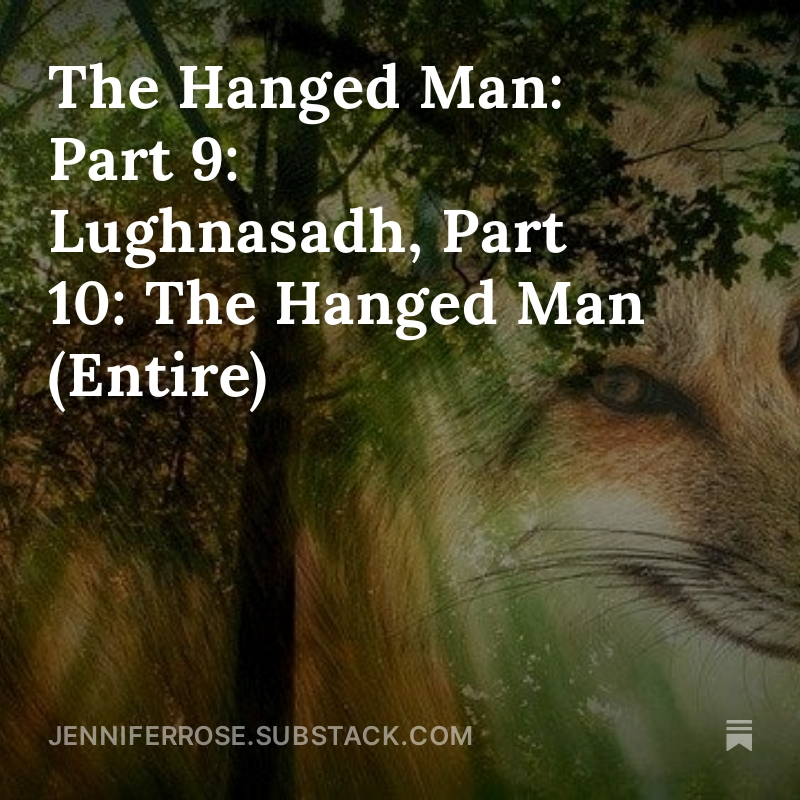
by Jenny Rose | Aug 5, 2023 | Power
Last week a Substacker I follow, Candace Rose Rardon, illustrated a memory I shared with her. I was absolutely thrilled. The union of my words and her art spoke to one of my core values: collaboration.
Collaboration is about power management. It’s defined as working with someone. Not directing them. Not submitting to them. Working with them. In other words, sharing power – power-with rather than power-over.

Image by Bob Dmyt from Pixabay
Is it just me, or are we as a culture moving away from sharing power rather than toward it?
Collaboration and cooperation lie at the heart of my fiction. All my life I’ve been preoccupied with working together, but I never had adequate language or studied power until I learned emotional intelligence. At that point the light dawned. I reviewed my relationships, both family and otherwise, through the lens of power.
It was a grim review. I set out to reclaim my power.
Let’s be clear: reclamation is not stealing.
I didn’t want to take power away from others. I wanted to reclaim what had been taken from me.
This involved needs, boundary work, and many other moving parts, most of which I’ve written about here over the last seven years (almost exactly seven years … wow), and all of which are woven into my books.
Speaking of my books, I have a dream that one day a visual artist will read my work, become inspired, and want to illustrate it. That’s not all. (Might as well dream big, right?) In the same dream a musician (drums and flute or pipe, at least) reads my work, becomes inspired, and adds music and a soundscape to it. I even dream one day we’ll develop the ability to incorporate scent into reading. 
I am a sensual person, and my writing reflects that. I myself see my characters and my world of Webbd vividly, but I’m not an artist. I respond deeply to music physically and emotionally, but I’m not a musician.
In every relationship I’ve sought collaboration. I’ve wanted a safe place to have an authentic voice, express an opinion, make a contribution. I’ve wanted the power to make choices. This has been true in the context of family, friends, spouses and boyfriends, coworkers, and community.
I have not been noticeably successful until the last ten years.
No matter how talented, strong, or knowledgeable we are, healthy collaboration can only make us bigger. Collaboration is tricky, though. It’s messy. We’re forced to deal with conflict, with different visions and voices than our own, different backgrounds, different belief systems, different ways of looking at the world and interacting with life. It’s work. It stretches us uncomfortably. We might have to be wrong (gasp!) and someone might find out we were wrong (horrors!).
Plenty of people say they want to collaborate when their true intention is a hostile takeover. Others seek collaboration as a way to make money or leverage other aspects of social power. Their agenda is to accrue power, not share it.
What Candace Rose Rardon did was extend a gift of generosity. When I sent her my memory I had no power over whether she chose to illustrate it or how she would illustrate it. I handed her my words and went on with life. I had no expectations. She sent back something beautiful woven of my words and her art. I’ve never met her. We exchanged no money. I know very little about her, but I do know this: she’s part of my tribe. She’s a creative collaborator.
Collaboration requires a willingness to be flexible and the willingness to accept someone’s vision regarding our art. As creators, we need to loosen our grip on our masterpieces and allow others to widen us. Perhaps someone else visualizes our character slightly differently than we do. Perhaps they see the character more clearly, or more fully than we can. As collaborators, we may be pushed to do more than we’ve done before, take new risks, try new things. Healthy collaboration makes us all more powerful, more expansive, more interesting, more textured.
We are stronger and more beautiful together than we are apart.

Photo by Helena Lopes on Unsplash
Collaboration is everywhere. It’s the falling rain and early birdsong on a spring morning. It’s the calling of shorebirds against the background of surf. It’s the buzzing of a fat bumblebee in a fragrant blossom. The world is unbelievably sensual. Walking through tall grass this time of year, the stems and heads turning straw-colored, the small scratching prick of grasshopper legs on my bare skin, the scent of warm grass in my nostrils, is a miracle of collaboration. A garden exists because of collaboration between countless forms of life and the weather.
We can’t collaborate in every situation all the time. Leaders lead. Parents parent. Bosses must manage their people, teachers their students. We all have areas in our lives we like to manage solo, including areas in our creative lives. On the other hand, we are seeing the consequences of no collaboration: chaos, fear, hatred, division, destruction, and social breakdown. We are now successfully being manipulated into choosing not to collaborate even with ourselves, but with consumerism, capitalism, and ideology instead.
Collaboration is wide. It’s not only about human-to-human interaction. If we don’t figure out how to collaborate with our planet, with the human and non-human life around us, and (perhaps most importantly) with ourselves, we will not thrive. We’ll solve no problems. Nothing will change. We’ll meet challenges as individuals and as communities and countries poorly. We will keep ourselves small, disorganized, and weak.
Or we can choose to combine our knowledge, our skills, our vision, and our humanity.
Questions:
- How have you collaborated successfully with others?
- How have you struggled with collaboration?
- What’s the hardest thing for you about sharing power with another?
- Are you open to collaboration? Why or why not?
Leave a comment below!
To read my fiction, serially published free every week, go here: 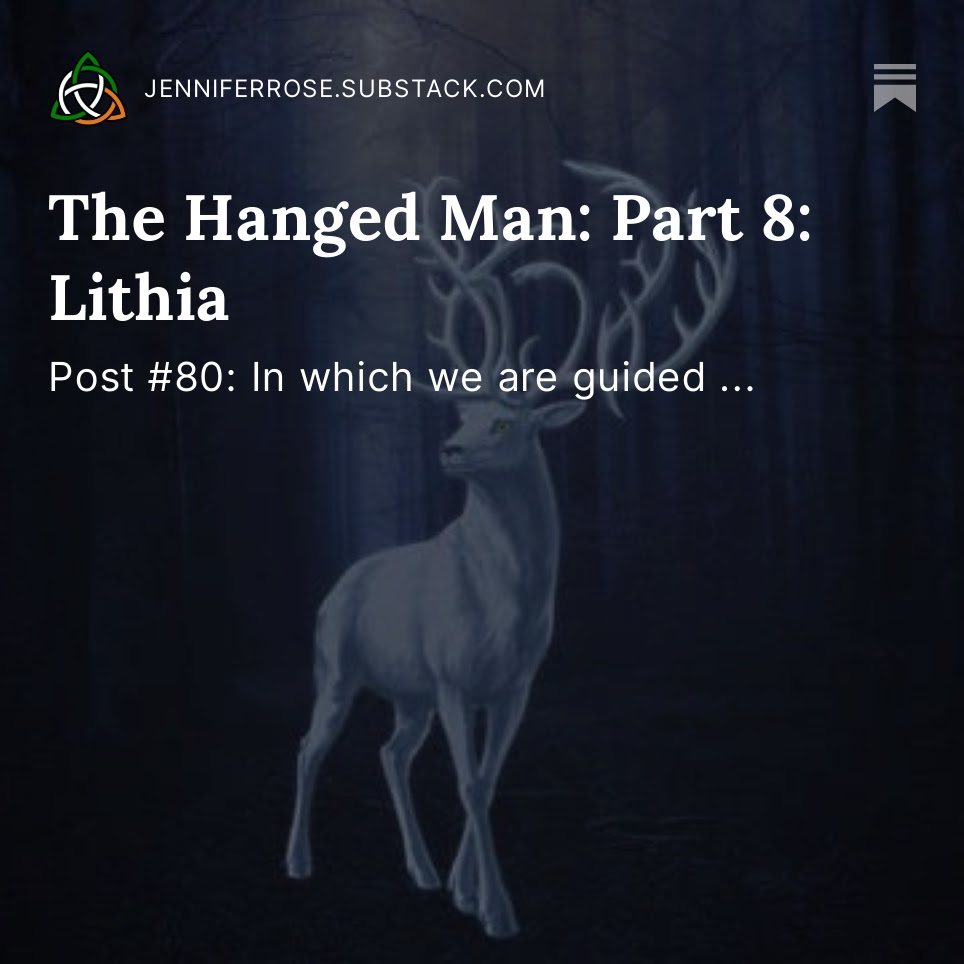
by Jenny Rose | Feb 25, 2023 | Connection & Community, Emotional Intelligence, Shadows
I found a brief offering in my Inbox from Seth Godin recently about bitterness being a wall we can lean against. The image caught my imagination. Since then, I’ve been thinking about walls … boundaries … supports … prisons … and the desperate, destructive choices we make to survive.

By Marc Pell on Unsplash
Walls. On the one hand, I like walls. I invariably position myself with my back against a wall when I’m in crowds or unfamiliar places. Nothing malignant can sneak up on me from behind. All my hypervigilance can go into watching my sides and front. I feel safe(er).
A corner is even better. Now two sides are covered.
A third wall, as in a blind alley or cul-de-sac, begins to feel more like a trap than a place of protection. What if I want to run away? I’m blocked on three sides.
A fourth wall? Now I’m in prison.
The thing about walls is they may keep danger out, but they keep everything else out, too. The good stuff. Love. Sunshine. Wandering children and butterflies. Inviting paths and trails. Possibility. Exploration. Views. Perspective. Wonderful surprises.
Walls, like everything else in life, can be taken too far. Built too wide and thick. Impenetrable. Too high to climb.
Shelter or dungeon?
What about metaphorical walls? What do we lean against because it’s familiar and we believe it keeps us safe from failure, from disappointment, from heartbreak?
Bitterness, certainly. We’ve risked. We’ve been vulnerable. It ended badly. We feel angry, disappointed, resentful. Never again, we tell ourselves. Things don’t work out for us. The world is against us. People suck. Life sucks. It’s our story, and we’re sticking to it. We’ve found a wall to lean on, a wall protecting us from trying again, risking again, feeling unpleasant feelings again.

By Hector J Rivas on Unsplash
But the wall is made of unpleasant feelings, isn’t it? Bitterness is the result of unresolved unpleasant feelings. So it’s really not protection. It’s reinforcement. It’s the thing closest to us pulling our focus from happier thoughts and feelings. It’s a constant negative reminder. It locks us in place with it, and it blocks any kind of relief.
As I’ve lived my life the last couple of weeks, interacting with and observing others, listening to the inside of my own head, I’ve made a list of walls we lean against:
Victimhood (closely allied with bitterness.)
Blame (oooh, this is a juicy one. “It’s not my fault. I have no responsibility, and therefore no power.”)
Denial (leaning on the wall, eyes squinched shut: “No, I won’t believe that! No, it’s not true! No, it’s not happening! It’s too scary! I’ll only accept what makes me feel good and in control!”)
Chronic health problems (“I would _________, but I can’t because I’m sick.” Sigh. Moan. Groan. Someone once said to me, “I don’t know what I’d do without my pain!” as though pain was her lover.)
Lack of money (“I can’t be happy. I can’t have/do what I want. I can’t experience abundance. I have no power.”)
Perfectionism (a personal favorite. “I would, but I’m afraid to because I won’t do it perfectly! So, no point in trying. I’m imperfect and therefore can contribute nothing of value, not even myself. Expect nothing from me. ‘Cause I’m so imperfect.”)
I don’t suggest we’re never victims, never have health problems, never experience financial scarcity. I don’t minimize the challenges of perfectionism or fear or the seduction of blame. However, constructing a wall out of such experiences and feelings and deciding to spend the rest of our lives leaning against it seems like a dubious choice. It may feel like it props us up and allows us to survive, but is survival the best we can hope for? Is leaning against a wall to stay on our feet the best we can do?

By Christina Botelho on Unsplash
Can a wall made of bitterness stand by itself? If we choose to step away from it, support ourselves, will the wall crumble? I wonder. What if the wall needs our support more than we need its support? It takes a lot of energy to maintain a wall.
What would happen if we just fell down instead of constructing walls to lean against? Better yet, what if we choose to lie down now and then, take a break, look at the sky, feel the world on our skin and beneath us? What if, when we feel hurt or despairing or sick or broken, we lay still and whispered, “Help!” and rested and waited for something or someone to come along and give us a hand back to our feet? If we’re not leaning (cowering) against walls, we’re in full view. Life can find us. Friends can find us. Help can find us. Hope, inspiration, and comfort can find us.
Walls can be useful. But they can also imprison us. They can be strong and organic and lovely, as in healthy boundaries. They can be poorly built and inadequate, too. Or just old and tired. Crumbling. Falling down. Gnawed away by Time’s tooth.
I ask myself, with all the world before me, why do I choose to lean against walls that separate me from it? Is that what I mean by safety?
Questions:
- What walls do you lean against?
- Do you think of a wall as protection or prison?
- How have your walls let you down?
Leave a comment below!
To read my fiction, serially published free every week, go here: